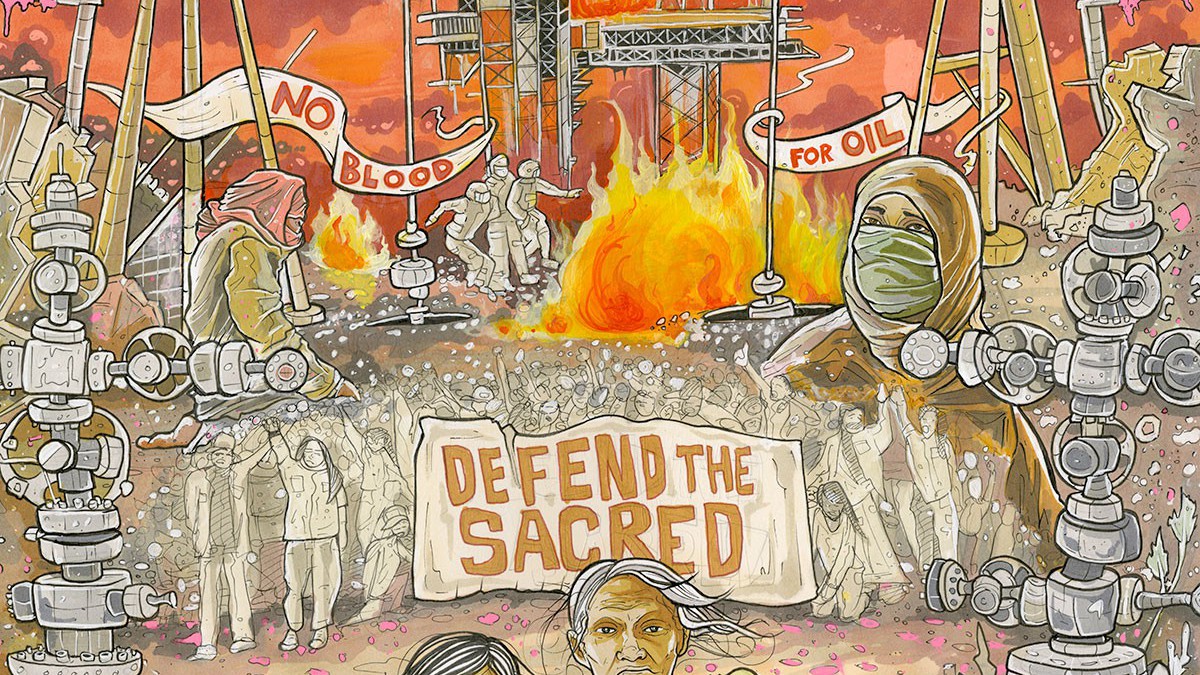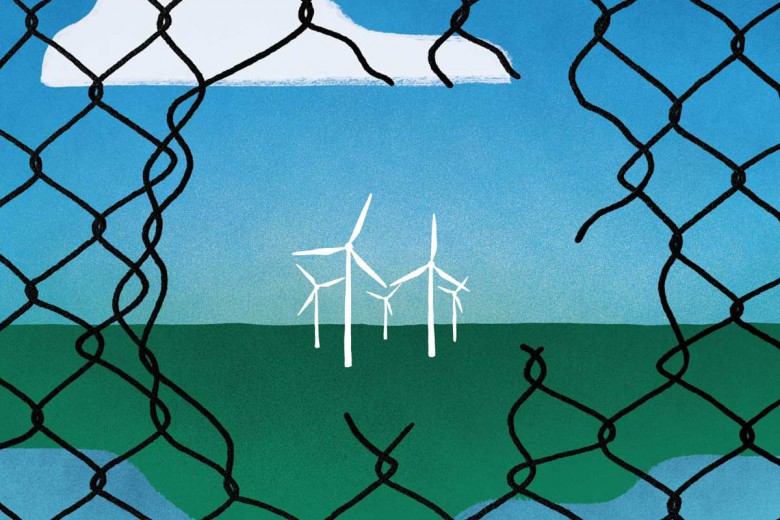In my last letter from the editor I made a statement that, to me, seemed totally matter-of-fact: “We live under a system that encourages capitalists to exploit and immiserate the working class.” A couple weeks later, I received an email from a reader, who wrote, “I double dare you to write a[n] editorial or an article quoting the above and enlarging and explaining how and why you can make that statement. This statement is central to your belief and being but I do not think you have what it takes to back up your own editorial.”
Now, I’m not one to run from a challenge, so I’m excited to publish this issue’s cover story, “Canada and the crisis of capitalism,” by Todd Gordon and Geoffrey McCormack.
Drawing on classical Marxist theory, the article explains how and why capitalism continually enters periods of crisis – or, as they’re more commonly known, economic recessions and depressions. As capitalism grows, its incessant drive to produce profit compels it to replace workers with machines and technology in the production process. But by doing so, capitalism undermines its own sources of profit, since – unlike a worker – a machine cannot impart surplus value to that which it produces. To stave off the decline in profit, capitalists will demand their workers toil longer and harder, while suppressing their wages. Eventually, the crisis bursts through these stopgap measures in the form of a stock market crash or a real estate bubble bursting. As Gordon and McCormack carefully chart, Canadian capitalism has entered such a period of volatility, which will eventually lead to crisis. And the costs of that crisis and recovery from it are always borne by the working class, migrants, Indigenous people, and the environment.
Okay, I didn’t publish a cover story about capitalism’s failings just because I was double-dared to. In fact, I was nervous to publish such a theory-heavy article – you’ll notice it’s very different from Briarpatch’s typical style, where we focus on telling the stories of grassroots social movements through the words of those on the front lines.
And while I love narrative journalism – the kind that shows, rather than tells – and it will always be a mainstay of Briarpatch’s work, our reader’s email clarified why anti-capitalist theory is necessary, even if it’s not always easy. If Gordon and McCormack are right – and I think they are – we’re approaching another, potentially deeper, recession. That means we’re about to be drowning in articles by centrist economists, business leaders, and mainstream pundits explaining the crisis in terms of household debt or bad investments; making crisis seem like a bug in the capitalist system rather than a central feature; and justifying the vicious austerity measures that governments will surely unleash in the name of “recovery.” We have to be ready with our own explanation – not just a general cry to “abolish capitalism,” but a careful and convincing study that can tell people why we’ve had 12 economic crises in the last century alone, why the rich just get richer each time, and why it’s working class people who always lose.
And we don’t need those explanations in some hypothetical mid-crisis future; we need them now. As I write, militarized RCMP officers are invading Wet’suwet’en territory, violently arresting land defenders in order to clear the way for the construction of the $6.6 billion Coastal GasLink pipeline. Both the federal and B.C. NDP have championed the United Nations Declaration on the Rights of Indigenous Peoples (UNDRIP), which includes the principle of free, prior, and informed consent. But both federal NDP leader Jagmeet Singh and B.C. NDP premier John Horgan continue to back the pipeline that’s being forced through unceded Wet’suwet’en territory. Without an analysis of capitalism, the NDP’s two stances appear to contradict each other. With an analysis of capitalism, we can understand that social democratic parties that embrace capitalism will always end up backing pipelines and colonial violence over climate justice and Indigenous sovereignty.
In her interview, “Sikhs, sovereignty, and the Canadian left,” Navjot Kaur helps readers understand the links between Indigenous sovereignty on Turtle Island and the Sikh sovereignty movement in Punjab, and calls on Jagmeet Singh to put the anti-colonial tenets of Sikhi into practice in the NDP’s policies. There are other articles in this issue, too, which work against the mechanical adoption of capitalist culture. Tai Jacob’s article about Resource Movement, an organization mobilizing wealthy young people to redistribute their wealth, does an amazing job at summarizing critiques of mainstream charity and philanthropy. And Paula Ethans’ feature paints a deeply-researched picture of a world where refugees are increasingly being used as bargaining chips between countries.
Without using all the tools at our disposal to understand capitalism’s structure and brace for its cycles – not just react to its symptoms – our movements will fail.







